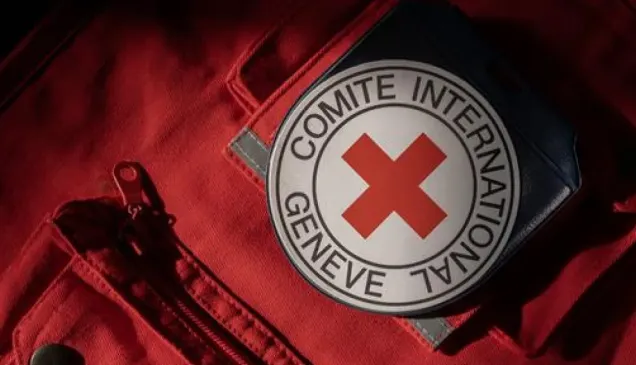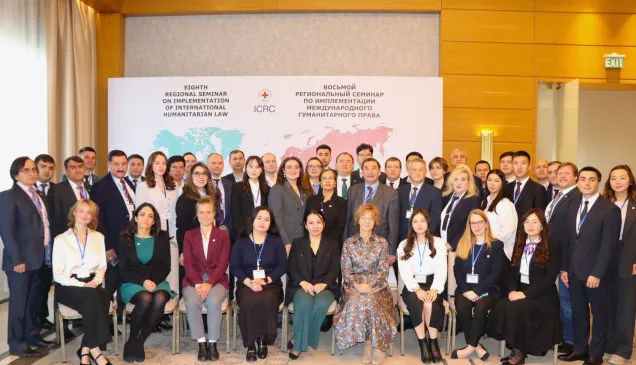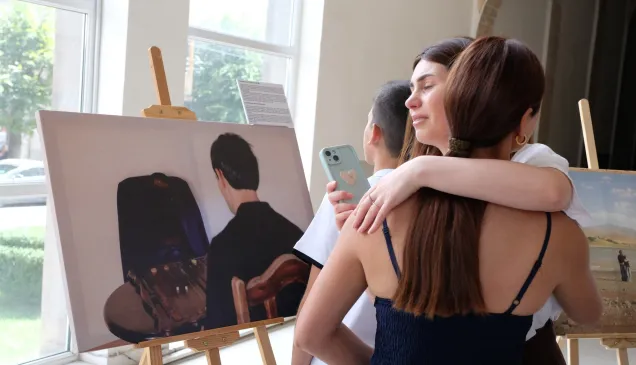Nagorno-Karabakh conflict: Stories of displacement, loss and starting over
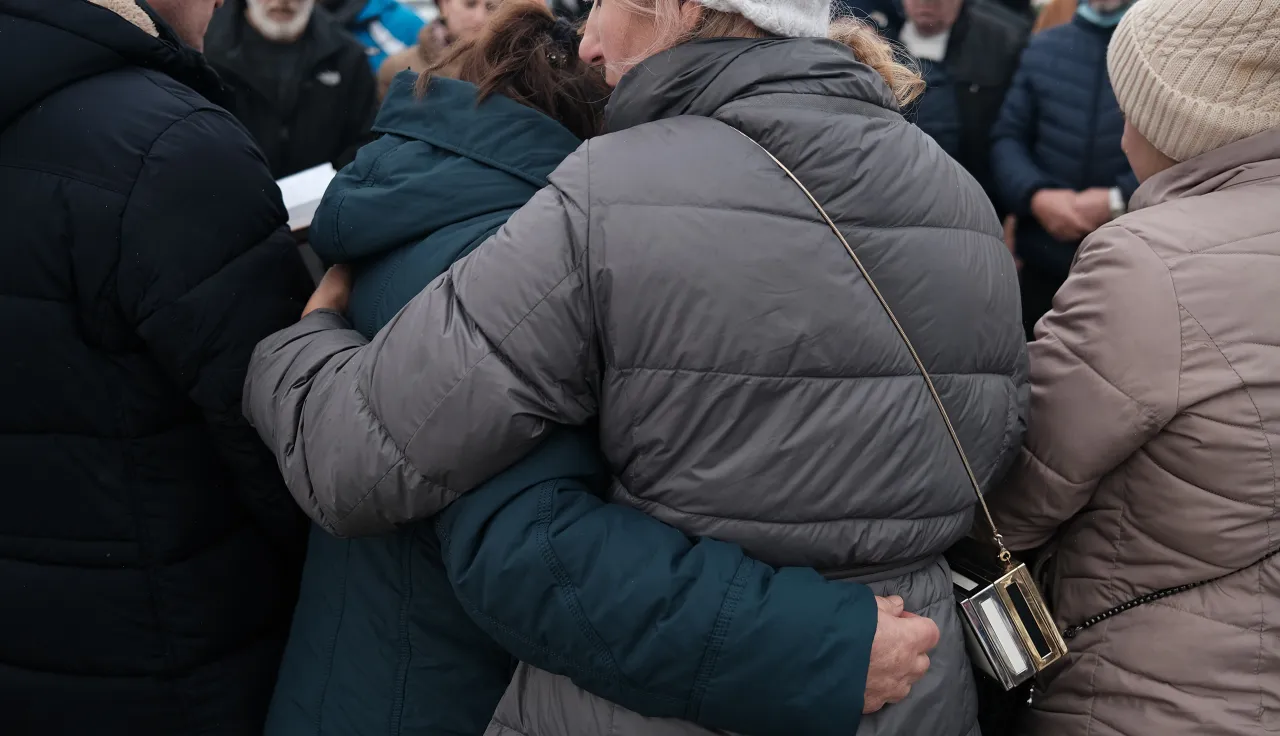
Double rows of cars mixed with a crowd of people; all sluggishly move along the narrow road. The crowd heads to a large hill that holds a burial ground and stands as a stark reminder of the young lives that have been lost.
Ludwig and Zarine Abrahamyans, a couple in their late sixties, are among those who have gathered. The severe escalation of Nagorno-Karabakh conflict in autumn 2020 took their youngest son away, who was laid to rest there among many others who had met with a similar fate. Every visit to the cemetery opens the floodgates for memories, both joyful and sad.

"Vazgen was a very kind, clever and talented boy. As a child, he was into sports and music and was a scout," says Ludwig, looking at a photograph of his son's smiling face. "He saw only the best in people and was always there to help." The twenty-six-year-old was studying urban development and serving in the military at the same time. He could never complete his studies though.
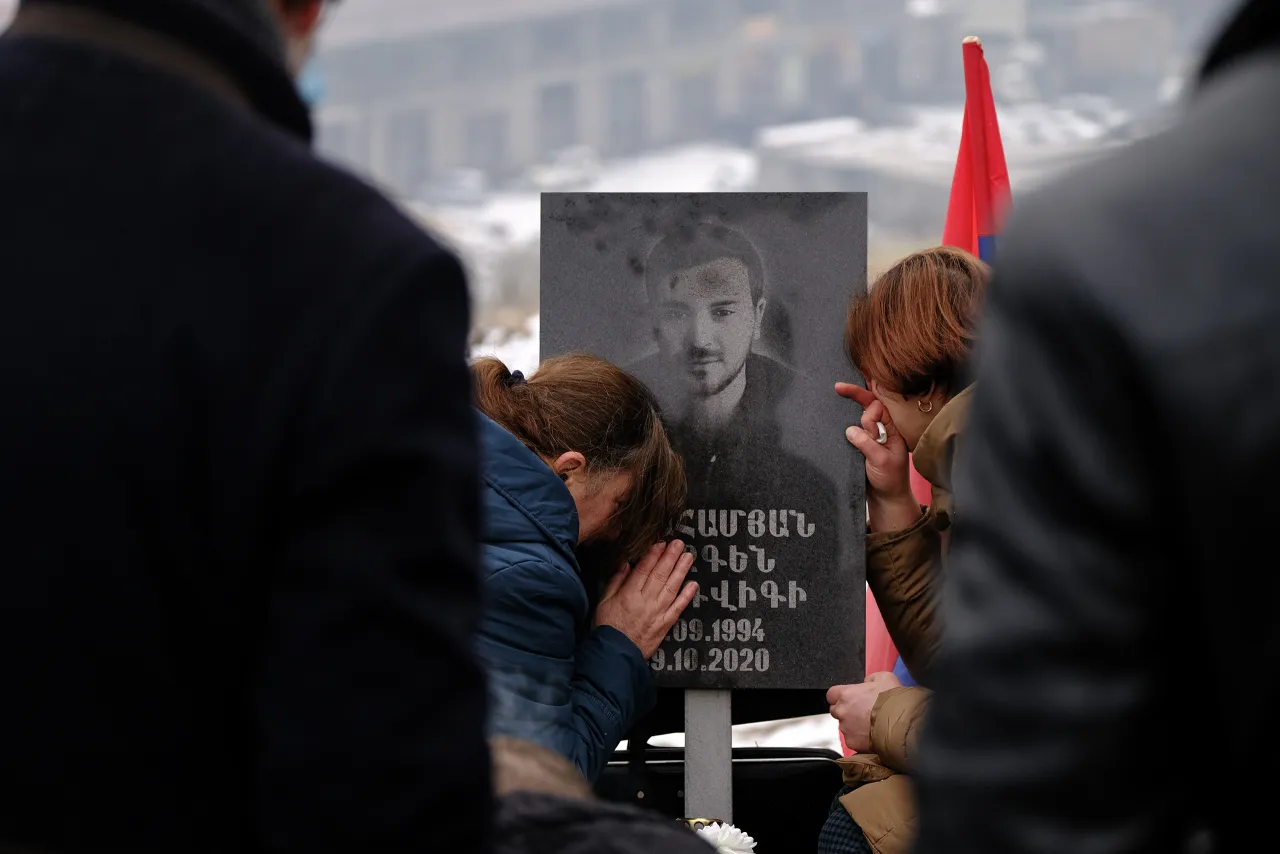
"We were awake when it all started, but we couldn't understand what was happening," Ludwig recalls, adding, "Vazgen got up, put his clothes on and left. It was the last time we saw him."
The parents did not hear from their son for 13 days, after which they finally received a call from him. "Vazgen would call us briefly to say that everything was okay with him. He never complained and cheered us up with promises to return," Zarine recalls.
After the cessation of hostilities, the family did not receive any news for a long time, until his remains were found as a result of search and retrieval operations facilitated by the ICRC.
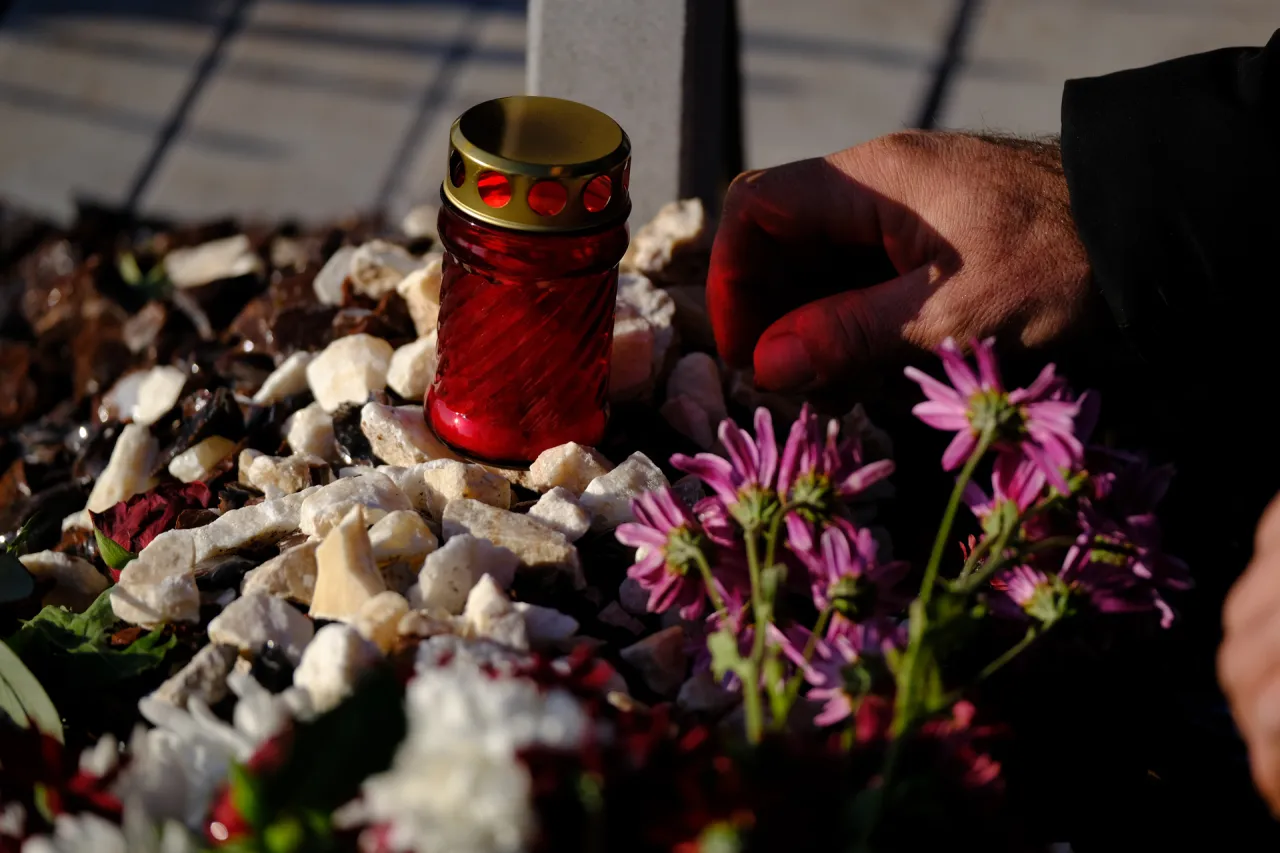
The high-strung atmosphere is pervaded by memories of the past, when the big family of Abrahamyans lived a happy life before the war. "We have been building our house for 28 years," Zarine recalls, adding,
But now we are left with nothing. Our home is gone, and worst of all, our son is gone.

Vazgen’s absence is most visible in Zarine’s eyes.
This is the second time the family has experienced the horrors of war. During the Nagorno-Karabakh conflict of the 1990s, Ludwig and Zarine lived underground together with their five children and neighbours. "It was a daily struggle," Zarine sighs. "We struggled for food, clothing for kids, electricity and water. We didn't even grasp how our children grew up in the shelter. By the time the fighting came to an end, our children had already grown up."
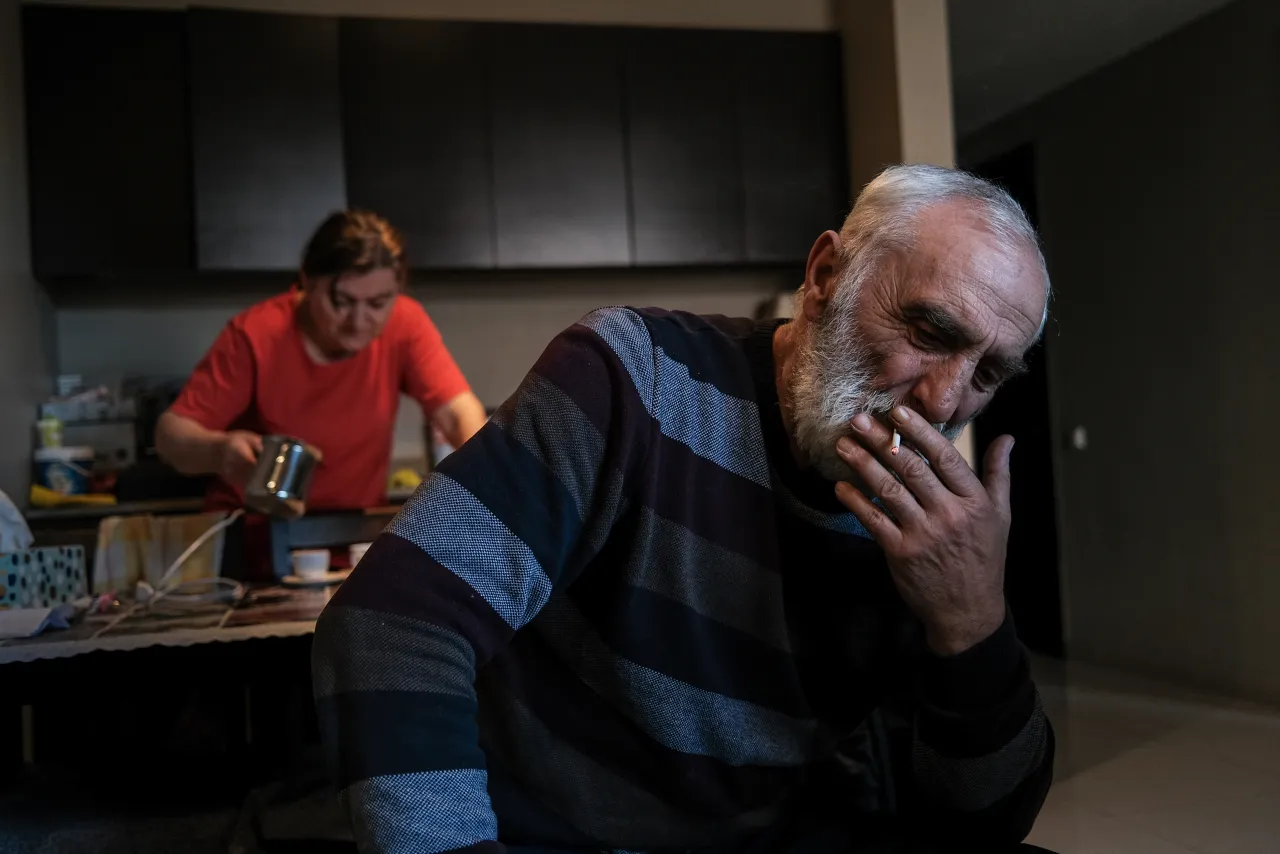
The family took solace when the conflict was over.
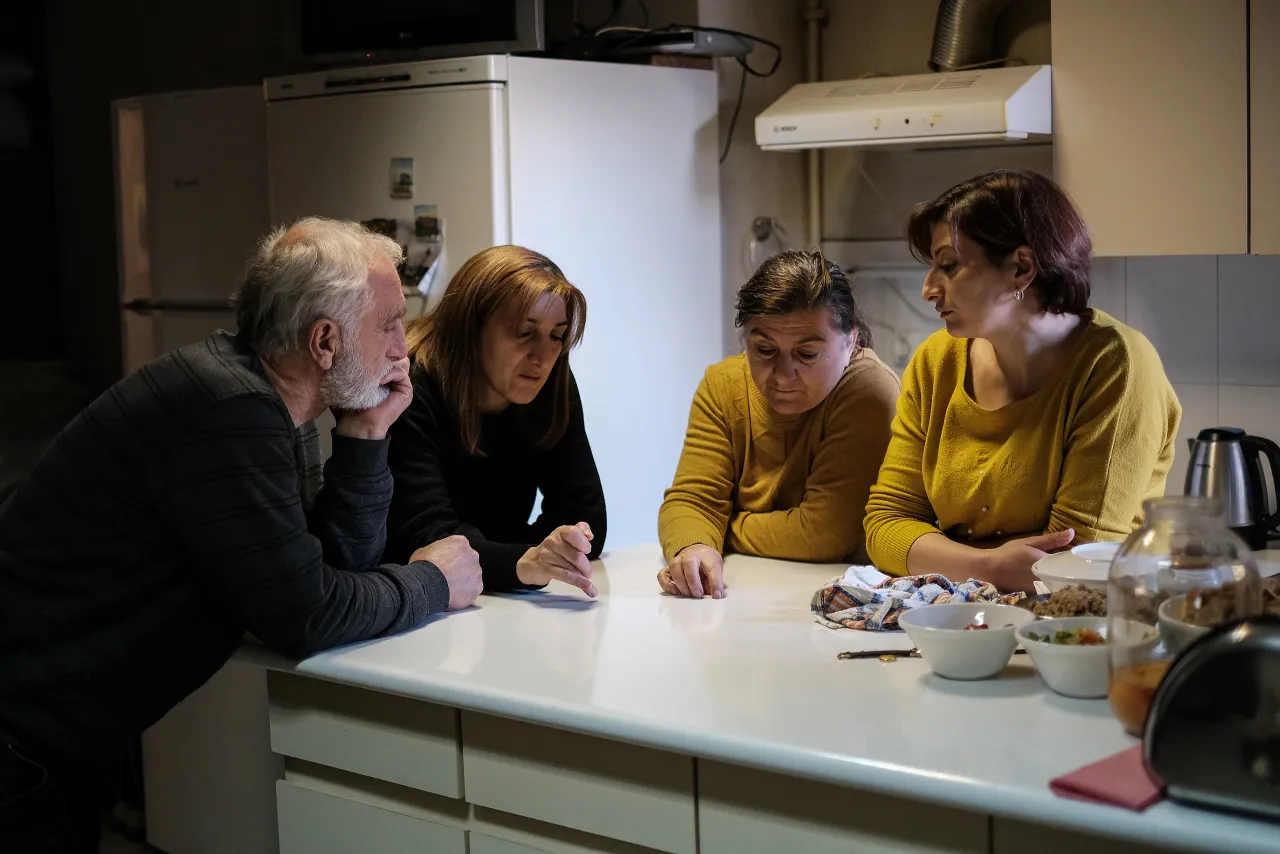
Silence has now come to replace the once cheerful chatter of the family.
From there onwards, life resumed. Ludwig started his own carpet factory that he ran for almost 18 years. Then he started to garden. All that time, his children lived a nonchalant life full of dancing, theatre, sports and music. "Every day was special for us," Zarine smiles. "Kids used to bring their schoolmates to party in our big house. We hosted many people, and there was always music: we played blues, jazz and classical music..." she meanders.
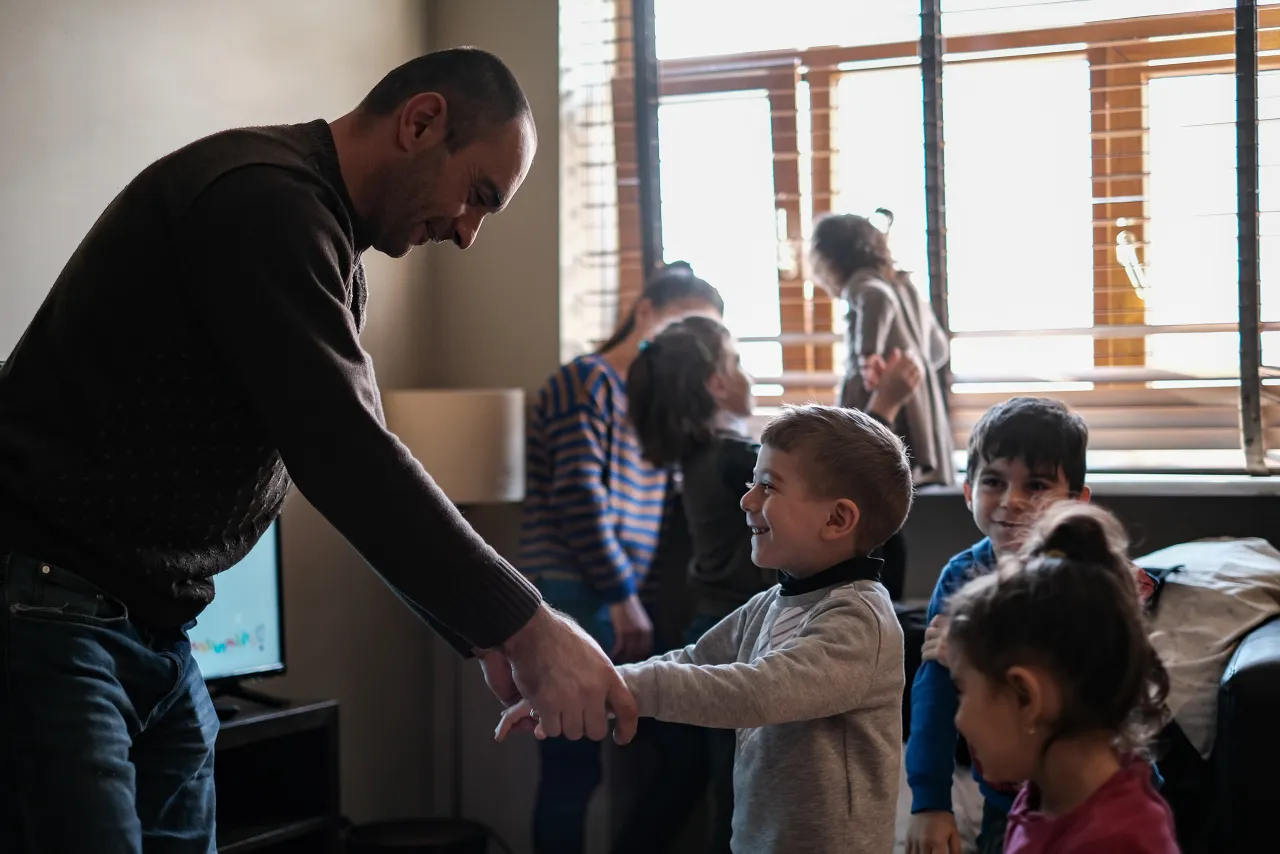
Ludwig and Zarine have found solace in their grandchildren. They are the only ones who break the deafening silence with their cheerful laughter.
Ludwig and Zarine recall their opulent house with much love and enthusiasm. "The two-story house had two halls, where we could host over 100 people. Our doors were wide open, and dance troupes and singers came along whenever there were concerts in our town."
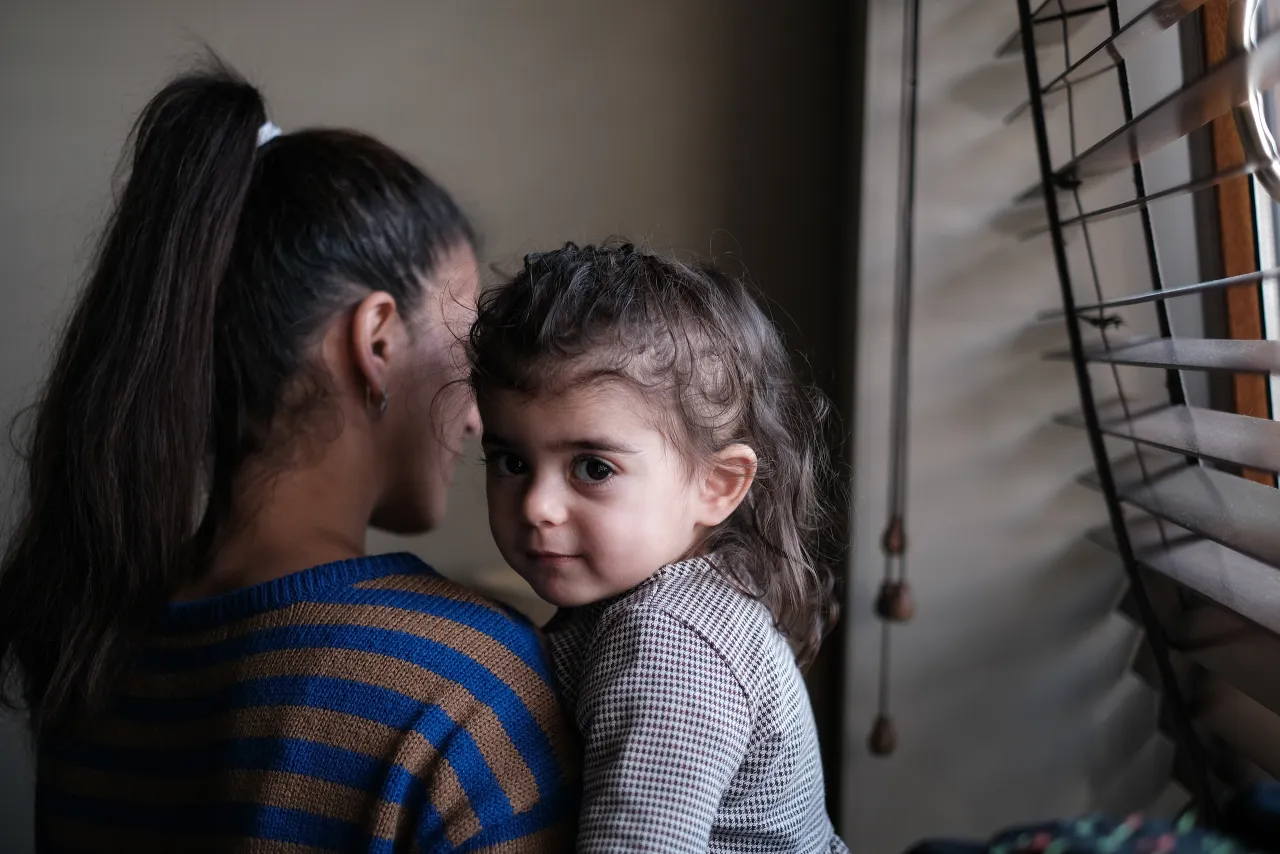
The escalation of the conflict last autumn brought an abrupt end to it all. The family could not manage to carry any possessions with them. They left everything behind – the carpets they had preserved for so many years, apple and quince trees, important documents, precious photo albums and video tapes with cherished memories of their life stored on them.
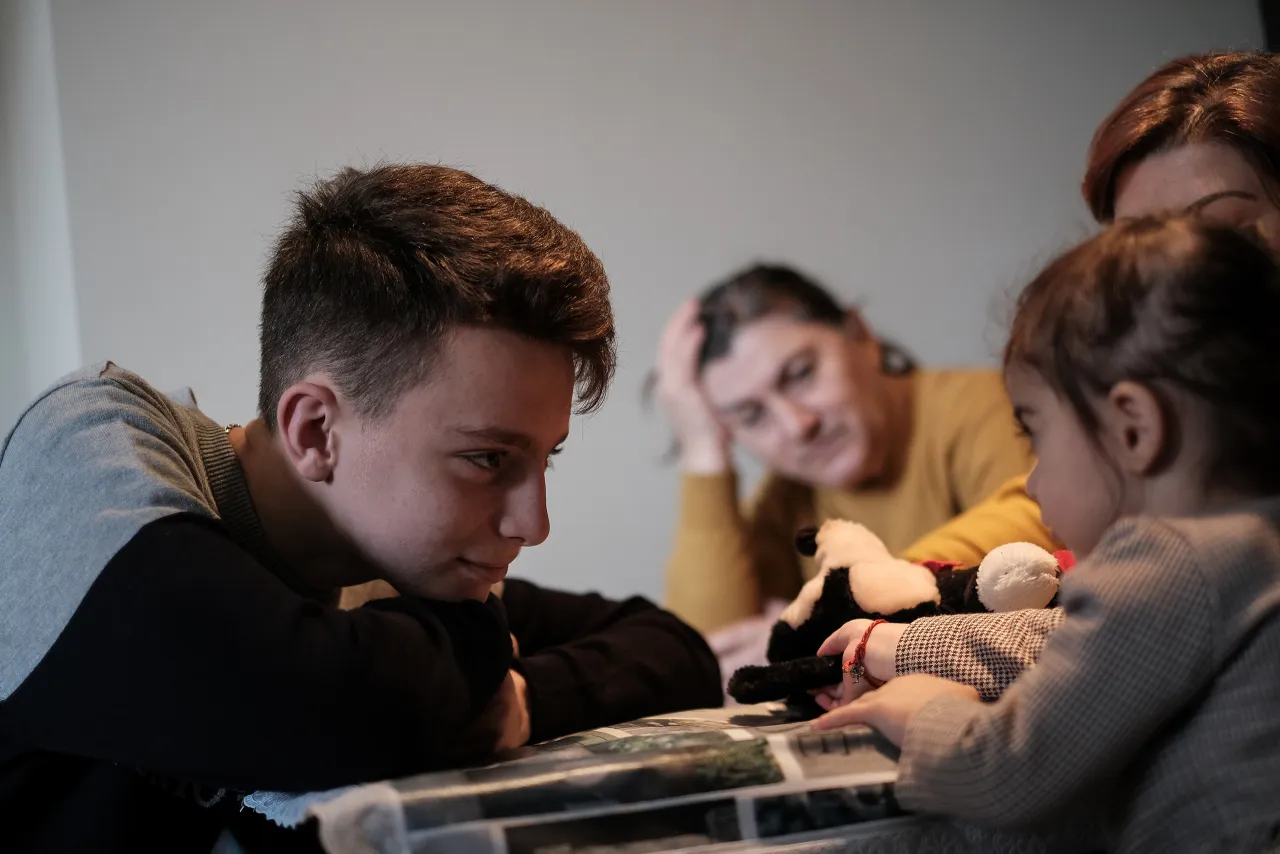
The escalated hostilities forced Ludwig and Zarine to flee their hometown. So did two of their daughters and one of the sons, finding a temporary refuge in a hostel in Yerevan, Armenia. They lived there for a few months, taking care of small kids and trying to cope with the loss of their beloved son.

Now, the family lives in a small apartment in Armenia's town of Abovyan. "Leaving a decent life behind us, we've ended up at the doorsteps of uncertainty," Ludwig says, adding,
What will life be like for my grandchildren?
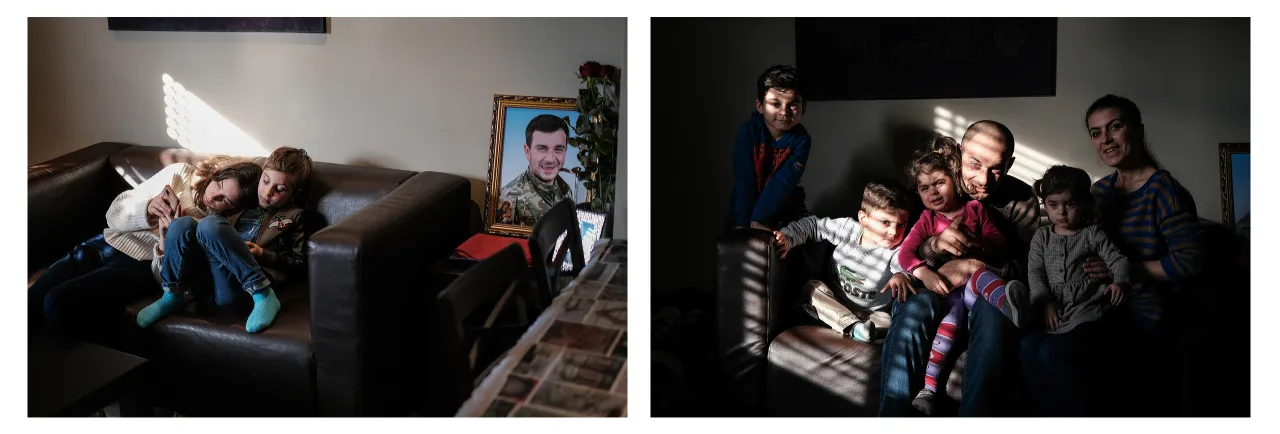
Ludwig, a six-year-old named after his grandfather, is sitting next to him, playing with bricks. He builds a colourful tower on a solid foundation. Then, off he goes to build a new toy house. And, off the family goes to start their life afresh, yet again.
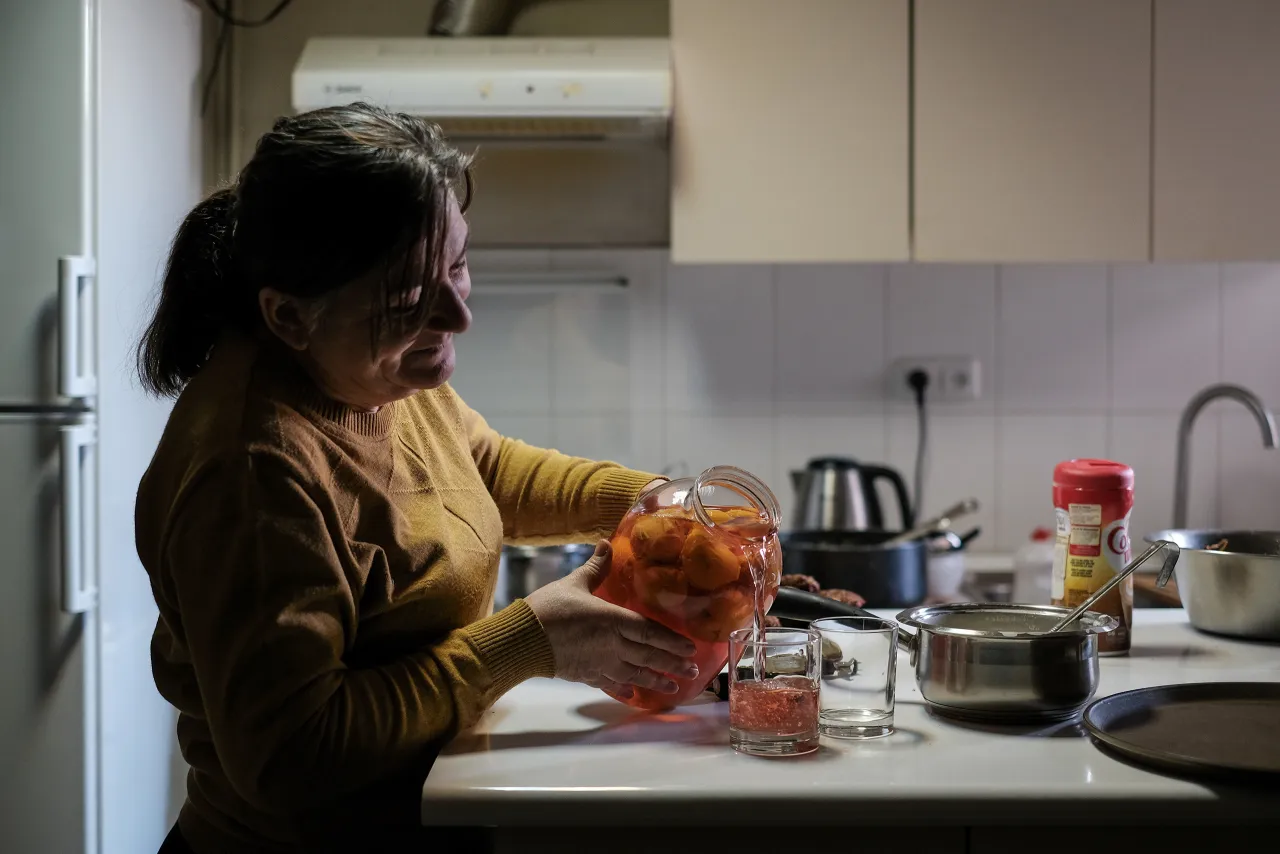
Our camera captured a rare smile on Zarine’s face as she poured some homemade juice from a jar for her grandchildren. It is this love that makes her believe they can move on.

